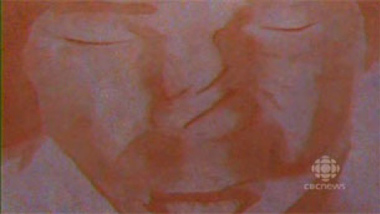|
9/21/2016 Comments A Blog Commentary on Luke’s Gospel, written for Settlers in the Occupied Territories called Canada (Part 2)
Note: Originally published on Dan's blog, On Journeying with Those in Exile Luke 1.1-4: Friends of God  Neil Stonechild, 17 years old. Cree. He froze to death when the Saskatoon police dumped him outside the city in a light jacket on a night when the temperature was -28°C. The wounds on his face were likely caused when he was whipped with handcuffs (which also left marks on his wrists). He was found in a field. He will rise again. Neil Stonechild, 17 years old. Cree. He froze to death when the Saskatoon police dumped him outside the city in a light jacket on a night when the temperature was -28°C. The wounds on his face were likely caused when he was whipped with handcuffs (which also left marks on his wrists). He was found in a field. He will rise again. Jesus was an Indian and God is Red. Red like love and rage. Red like the earth that constitutes our bodies. Red like the waters that flow from the mothers who birth us. Red like Grandfather Sun whose warmth and light and love is given unconditionally to all. Red like the fire the Story Keepers and the Old Ones (Kehteyak in Cree) say will destroy the world of the whites. And red like ochre and the scalps of the Beothuk. The Beothuk, it is well known, were hunted for sport by European settlers, their scalps collected by those who came to bring civilization to the savages. So much civilization was brought to them, that the Beothuk are no more. This is often referred to as the “Beothuk extinction,” but that seems to suggest that the Beothuk were a species of animals — perhaps prehistoric, like the Mammoth or the Giant Sloth. But the Beothuk were a people, not prehistoric animals, and what happened to them was genocide. “Beothuk,” by the way, means “Red.” They were called “Red Indians” because they took red ochre and smeared it on their bodies. They were red like love and rage and blood and fire and God. The Beothuk were “Red Indians” but the term redskins, didn’t really take off until a few more scalping campaigns. In Halifax, in the mid-eighteenth century, the British Governor Edward Cornwallis (the Canadian Government has a statue dedicated to him there that you can visit) declared that the Crown would “offer a reward of 10 Guineas for every Indian Micmac taken or killed, to be paid upon producing such Savage or his scalp.” A few years later, Lieutenant Governor Spencer Phibs sweetened the deal: Fifty pounds for the scalp of males older than 12. For females and males under the age of 12 brought in as prisoners, 25 pounds. For the scalps of females, or males under the age of 12, 20 pounds (this law is actually still on the books in the Canadian Province of Nova Scotia). It was these scalps that were referred to as redskins – much like furs and pelts collected by other traders were called beaver skins or otter skins and so on. And this is how we know that God is Red – because Jesus was a redskin. Jesus was an Indian stretched, and torn, and pierced, and hung out to drain and dry and die because that was the safest and most profitable thing for the settler rulers of the colony to do. Hung out like a fish, or an exhibit, or a logo. But this redskin, Jesus, Luke tells the reader, is a lot like God. So much so that God raises this tortured and executed Indian from the dead. This is the stuff of nightmares for settlers and colonizers and oppressors. If the scalped and executed and dispossessed and raped and murdered and bought and sold and extinct can come back to life, well, what then? What will they do? Colonizers are constantly haunted by stories of the dead who come back to life again. Nero had nightmares about the statues of vanquished nations coming to life in the theatre of Pompey and surrounding him, pressing in on him, until he could no longer move. Hollywood makes a lot of money presenting settlers today with multiple versions of the nightmare of zombies, revenants, and the walking dead (Stephen King’s Pet Sematary makes this a bit more explicit, using the common American B-horror motif of the ancient Indian burial ground) . White Americans may well shudder and wonder, “what about my children?” if they heard that dead slaves were rising again, and settlers all across Turtle Island may feel the same if they heard that dead Indians were rising. In fact, if you’re a settler and this suggestion doesn’t make you pause there’s a good chance that you’ve misunderstood both this story and yourself. Because the next thing you need to realize is that Luke was not writing for you. This is not your good news. This is not your Gospel. Luke is written for Θεόφιλε, Theophilus – a name meaning “God’s Friend.” And God is Red. And Jesus was an Indian. And if you aren’t an Indian and if you, in fact, live on stolen native land, and if you continue to live comfortably within the slow genocide of settler colonialism (if you are #blessed), then you better think long and hard about whether or not you are a friend or enemy of God. But before we go further into friends and enemies (Luke jumps immediately to one of each, although the enemy comes first), I need to make a personal comment about this last point. Because I’m a settler living on stolen native land and comfortably benefiting from the slow genocide that contemporary settler colonialism imposes upon the Indigenous peoples of Turtle Island (one Prime Minister’s reconciliation is another Prime Minister’s assimilation, is another Prime Minister’s extermination campaign). So who am I to talk about this record of good news? My people are not friends of God and I am not Theophilus. However, I choose to write this commentary because my people usually think otherwise. They usually think this is their good news, their Gospel, their Jesus, their God. My people steal stories like they steal land — violently, without any regard for others, and with a full but false sense of their righteousness and manifest destiny (again, not much has changed since the Roman Emperors who asserted that their piety brought them victory and their victory brought the world justice and peace). I am fully aware of this and hope I am not continuing this process of story-stealing. Instead, what I am trying to do is take what I have heard back to my people. In this regard, I can’t help but think of the words of Taiaiake Alfred, a Kanien’kehá:ka scholar, who echoes Malcolm X in his advice to well-meaning white settlers (my somewhat embellished paraphrase): If you want to do good, leave Indigenous communities to take care of themselves (as they are fully able to do so — in fact, more often than not, well-intentioned do-gooders like residential school teachers, social workers, pastors and some RCMP officers, have made things much, much, much worse). Instead go and deal with the root of the problem — settlers in settler society. Our people can take care of themselves. Go take care of your people. So I have heeded these words, and I am going. Because my people have gotten things all wrong. We have treated Jesus as if he were a European settler (Roman), God as if God were white (and male), and us as if we are God’s friends. If we’re going to get this right, we have to try and hear these stories again. And so I will follow Luke’s story and turn to Herod and Zechariah. However, in order to understood these characters — the first ones introduced apart from the reader — we need to understand the Indian Act, Indian Act chiefs, and how roles were distributed in traditional Indigenous social structures. That will be the subject of the next reflection.
Comments
|
Disclaimer
The viewpoints expressed in each reader-submitted article are the authors own, and not an “official Jesus Radicals” position. For more on our editorial policies, visit our submissions page. If you want to contact an author or you have questions, suggestions, or concerns, please contact us. CategoriesAll Accountability Advent Anarchism Animal Liberation Anthropocentrism Appropriation Biblical Exegesis Book Reviews Bread Capitalism Catholic Worker Christmas Civilization Community Complicity Confessing Cultural Hegemony Decolonization Direct Action Easter Economics Feminism Heteropatriarchy Immigration Imperialism Intersectionality Jesus Justice Lent Liberation Theology Love Mutual Liberation Nation-state Nonviolence Occupy Othering Pacifisim Peace Pedagogies Of Liberation Police Privilege Property Queer Racism Resistance Resurrection Sexuality Solidarity Speciesism Spiritual Practices Technology Temptation Veganism Violence War What We're Reading On . . . White Supremacy Zionism ContributorsNekeisha Alayna Alexis
Amaryah Armstrong Autumn Brown HH Brownsmith Jarrod Cochran Chelsea Collonge Keith Hebden Ric Hudgens Liza Minno Bloom Jocelyn Perry Eda Ruhiye Uca Joanna Shenk Nichola Torbett Mark VanSteenwyk Gregory Williams Archives
October 2017
|
Search by typing & pressing enter


 RSS Feed
RSS Feed